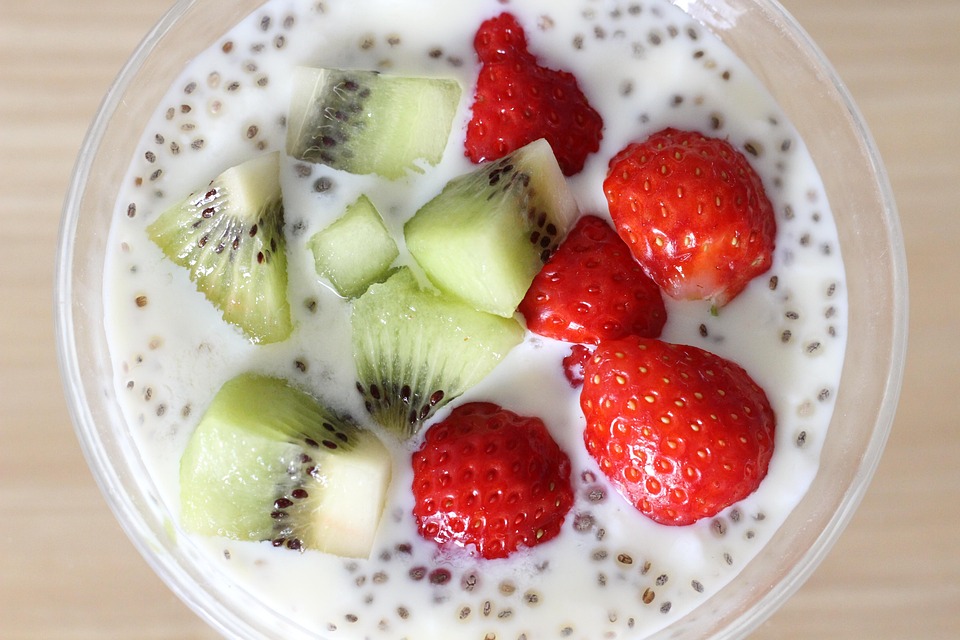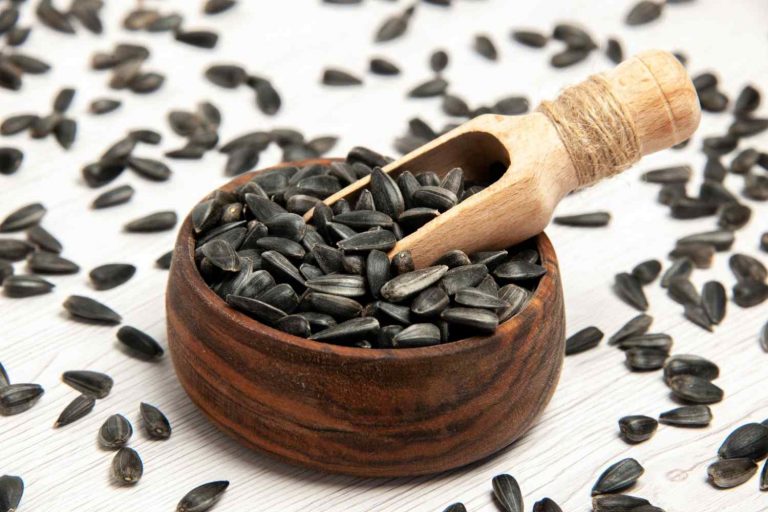Ever found yourself squinting at the fine print on a menu? Or perhaps wishing for those reading glasses during a late-night binge-watch? Vision issues can sneak up on us, often unnoticed until they become bothersome. Yet, what if the solution to sharpening your sight could be as straightforward as incorporating a tiny seed into your diet?
Chia seeds, those little black and white gems packed with nutrients, have been gaining attention lately—not just for their health benefits but also their potential role in improving eyesight. Let’s explore five compelling reasons why these seeds may boost your vision.
Contents
1. Omega-3 Fatty Acids: Nature’s Eye Protector
Chia seeds are one of the richest plant sources of omega-3 fatty acids, particularly alpha-linolenic acid (ALA). According to a study published in the Journal of Lipid Research, omega-3 fatty acids play a vital role in maintaining optimal eye health. ALA is crucial for the structure of eye cells, assisting in the development of the retina and possibly reducing the risk of age-related macular degeneration (AMD) [1].
Why is this significant? AMD is a leading cause of vision loss in older adults. The nutrients found in chia seeds could help protect the retina from oxidative stress, reducing the development of this condition. An intake of omega-3s has been linked with improved overall eye health, especially for individuals who don’t consume enough fish.
Benefits:
- Supports retinal health.
- May decrease the risk of macular degeneration.
Limitations:
While chia seeds are a great source of omega-3s for those following a plant-based diet, they provide ALA, which is less efficient than the omega-3s found in fish like DHA and EPA.
2. Antioxidants: Fighting Free Radicals
Chia seeds are also rich in antioxidants, including quercetin, kaempferol, and chlorogenic acid. These compounds combat oxidative stress by neutralizing free radicals, unstable molecules that can damage cells, including those in your eyes.
A 2021 study in Nutrition Reviews highlights that antioxidants can significantly reduce inflammation and oxidative damage in the retina and lens of the eye [2]. Over time, this protective effect can lead to a lower incidence of cataracts and other eye diseases.
Benefits:
- Helps prevent oxidative damage.
- Reduces inflammation related to eye diseases.
Limitations:
While antioxidants are beneficial, they are just one piece of the puzzle; a holistic approach to eye health includes a variety of other nutrients and lifestyle choices.
3. Fiber-Rich: Managing Blood Sugar Levels
An unexpected link exists between blood sugar levels and eye health. High blood sugar can contribute to diabetic retinopathy, a serious eye condition impacting people with diabetes. Chia seeds are a fantastic source of soluble fiber, which has been linked to better blood sugar control.
Research published in Diabetes Care points out that high-fiber diets can improve glycemic control, which in turn may reduce the risk of diabetic eye diseases [3]. By incorporating chia seeds into meals, you can help maintain steady blood sugar levels, which may protect your vision in the long run.
Benefits:
- Aids in blood sugar management.
- Can lower the risk of diabetic retinopathy.
Limitations:
If you’re not careful, adding too much fiber too quickly can lead to digestive discomfort. It’s essential to increase fiber intake gradually and drink plenty of water.
4. Vitamins for Vision: A Nutritional Powerhouse
Chia seeds are also rich in essential vitamins and minerals that contribute to eye health, particularly vitamin A, vitamin C, and zinc. Vitamin A is fundamental for maintaining good vision; it helps produce the pigments in the retina and is crucial for night vision.
A 2020 study in Nutrients emphasizes that vitamin C plays a role in reducing the risk of cataracts and age-related macular degeneration, while zinc is vital for maintaining the structural integrity of the retina and may enhance night vision [4].
Benefits:
- Supports overall vision health.
- May help prevent cataracts and AMD.
Limitations:
Nutrient absorption can sometimes be impacted by the presence of other foods or supplements. It’s essential to maintain a balanced diet for optimal nutrient acquisition.
5. Versatile and Easy to Incorporate
One of the best things about chia seeds is their versatility. You can add them to smoothies, yogurt, oatmeal, or even bake them into bread. They absorb water and form a gel-like consistency, which can enhance the texture and nutritional profile of various foods.
Moreover, studies have shown that increasing your intake of nutrient-dense foods, like chia seeds, can have a cumulative positive effect on overall health. In a comprehensive analysis published by BMJ Open, a diet rich in whole foods is correlated with improved health outcomes [5]. This healthy mindset may even subconsciously encourage better hydration and overall lifestyle choices.
Benefits:
- Easy to incorporate into various dishes.
- Encourages a holistic approach to health.
Limitations:
While chia seeds are beneficial, they should complement a diet rich in various fruits, vegetables, and whole grains rather than serving as a sole health solution.
FAQs
Can chia seeds replace fish as a source of omega-3s?
While chia seeds are a rich source of ALA, the type of omega-3 found in fish (DHA and EPA) is more potent for eye health. If you’re plant-based, consider a supplement derived from algae, which provides DHA.
How much chia should I eat daily for eye health?
A common recommendation is about 1-2 tablespoons (15-30 grams) per day. However, incorporating them into a balanced diet is crucial for maximum benefit.
Are there any side effects to eating chia seeds?
For most people, chia seeds are safe. However, consuming large amounts without adequate hydration may lead to digestive issues. Always drink plenty of water when increasing your fiber intake.
Are chia seeds suitable for everyone?
Generally, chia seeds are safe for most people. However, those with specific allergies or health conditions should consult with a healthcare provider before incorporating them into their diet.
Conclusion
Chia seeds, with their impressive nutritional profile, offer a range of benefits that could play a crucial role in maintaining and enhancing your eyesight. From omega-3 fatty acids to antioxidants and vitamins, these tiny seeds pack a punch for your eye health.
Incorporating chia seeds into your diet is just one step in a broader approach to maintaining good vision. Pairing them with a variety of other healthful foods, staying hydrated, and getting regular eye check-ups can help ensure your vision remains sharp for years to come. Next time you reach for a snack or meal, consider adding chia seeds—it might just be a small change that leads to significant benefits for your eyes.
References
- Hu, F. B., & Willett, W. C. (2002). “The nutrition of omega-3 fatty acids: A commentary.” Journal of Lipid Research. URL: https://www.jlr.org/content/43/5/886
- Manach, C., et al. (2021). “Polyphenols: food sources and bioavailability.” Nutrition Reviews. URL: https://academic.oup.com/nutritionreviews/article/76/4/252/5863710
- Slavin, J. L. (2005). “Why whole grains are protective: biological mechanisms.” Diabetes Care. URL: https://care.diabetesjournals.org/content/28/10/2535
- Li, Y., et al. (2020). “Zinc and Eye Health.” Nutrients. URL: https://www.mdpi.com/2072-6643/12/5/1340
- Schwingshackl, L., & Hoffmann, G. (2013). “Dietary patterns and change in body weight: a systematic review and meta-analysis of prospective studies.” BMJ Open. URL: https://bmjopen.bmj.com/content/3/1/e001529
Get Your FREE Natural Health Guide!
Subscribe now and receive our exclusive ebook packed with natural health tips, practical wellness advice, and easy lifestyle changes, delivered straight to your inbox.




